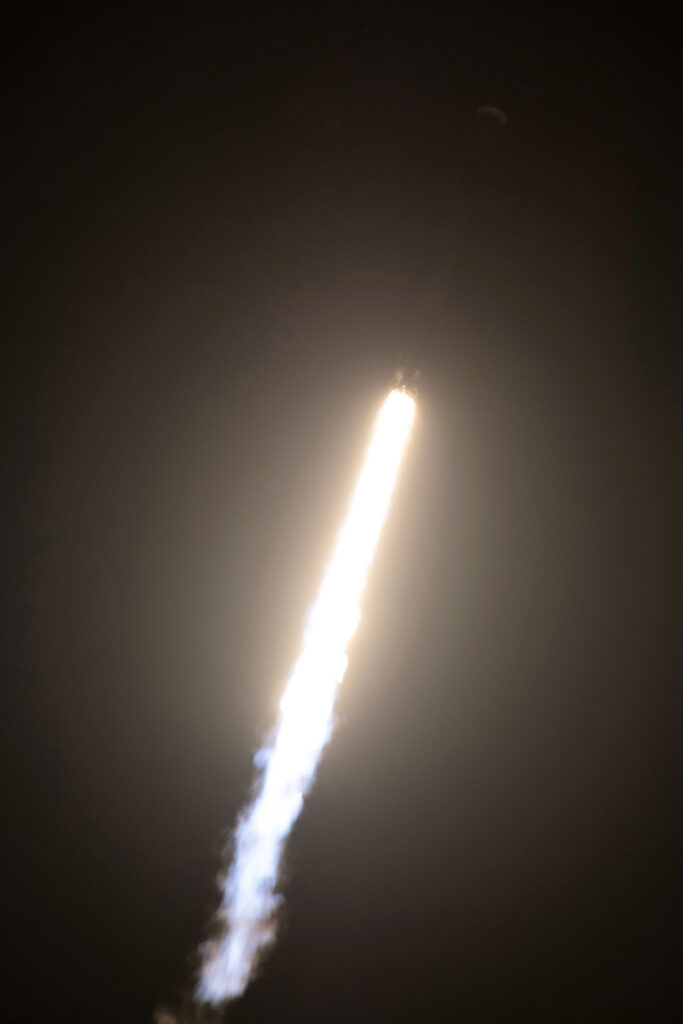The first full moon of 2024 rose over Earth on Thursday (Jan. 25), in the form of January’s Wolf Moon.
The January full moon takes its name from packs of hungry wolves that would howl outside native American villages amid the cold and deep snows of winter, according to NASA.
Wolves weren’t the only ones who braved the frigid weather on Thursday to observe the moon, as skywatchers across the globe bundled up and went hunting for incredible images of Earth’s lunar companion.
Related: Full moon calendar 2024: When to see the next full moon
Read more: What is the moon phase today? Lunar phases 2024
Astronomer and founder of the Virtual Telescope Project Gianluca Masi caught a highly detailed image of the Wolf Moon from Italy. In the photograph, the light and dark patches of the lunar surface are clearly visible.
Particularly prominent in Masi’s Wolf Moon image is the Tycho Crater at the bottom of the moon, a dark circle sitting at the center of an explosion of white spikes.

The moon appears to have a more yellow hue as seen in a Wolf Moon image taken by Davide Pischettola, also from Italy. The image shows January’s full moon shining over the branches of the Murgia trees near the southern Italian city of Andria, which is known for its produce of wine, olives, and almonds.

The moon looks surprisingly warm in an image that shows it rising with an orange glow next to the snow-covered Corno Grande and Pizzo Cefalone peaks, also in Italy.

A time-lapse taken from the same location appears to show the moon changing colors as light conditions change as the sun sets.

Veronica in the Fens, an X user based in the UK, was able to catch a striking image of the moon after waiting for the clouds to clear over Ely, Cambridgeshire.
The Full Wolf Moon 🌝 over Ely, Cambridgeshire as the clouds cleared for in the sky. pic.twitter.com/g5iRN04YVeJanuary 25, 2024
Another X user, Kevin Plamer, was able to catch an image of the wolf Moon roaming the frigid wilderness of Montanna as January’s full moon rose over the Tongue River.
Wolf Moon rising over the Tongue River tonight #wywx pic.twitter.com/lmc54jpUZHJanuary 26, 2024
AI student and photographer Anas took to x to post several incredible images of the Wolf Moon from Islamabad Pakistan. One striking picture by the X user shows the moon appearing to be the heart of an exloping cloud of gas that resembles the nebulas that surround dying stars after they are rocked by supernova explosions.
The Wolf Moon 2024 – First Full Moon of the year.#fullmoon #Supermoon pic.twitter.com/vSXUFgMkuxJanuary 25, 2024
Snapping the Wolf Moon wasn’t the only reason to brave the cold on Thursday. The manin draw for these fishermen in Colombo was catching a bite, with the January full moon providing some added illumination.

In an image taken in Tehatta, West Bengal, India, Soumyabrata Roy captured the Wolf Moon looking diminutive but strikingly clear, shining through bare winter branches.

The Wolf Moon wasn’t just captured next to stunning natural features by skywatchers on Thursday. January’s full moon was also seen next to some intriguing man-made constructions, both old and new.
The image below was taken by Thilina Kaluthotage and shows the first full moon of 2024 rising next to a tower in Colombo, Sri Lanka, in a dark and muddy-looking smoggy sky.

Back in the UK, John Inge, the Bishop of Worcester, was able to catch a snap of the Wolf moon shining brightly over Worcester Cathedral. The Bishop posted his image on X feed writing: “Worcester Cathedral always looks good with a full moon, and this year’s ‘Wolf Moon’ was no exception.”
Worcester Cathedral always looks good with a full moon, and this year’s ‘Wolf Moon’ was no exception pic.twitter.com/JSDmSArL5DJanuary 26, 2024
If these incredible Wolf Moon images have got you hungry to capture the next fully illuminated lunar face for yourself, you won’t have to wait too long. The next full moon, the second of 2024, is the Snow Moon, which rises on Feb. 24.
If you’d like to take a look at the moon close-up after seeing these incredible photos, our guides to the best telescopes and best binoculars are a great place to start.
And whether you want to image the moon or to explore the night sky in general, check out our guide on how to photograph the moon, as well as our recommendations for the best cameras for astrophotography and best lenses for astrophotography.
Editor’s Note: If you snap an image of the Wolf Moon and would like to share it with Space.com’s readers, send your photo(s), comments, and your name and location to spacephotos@space.com.


